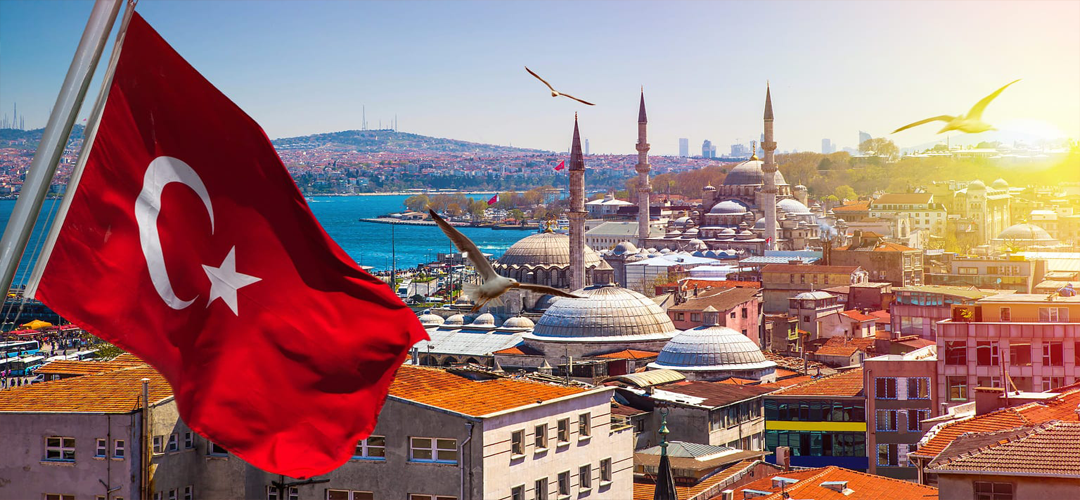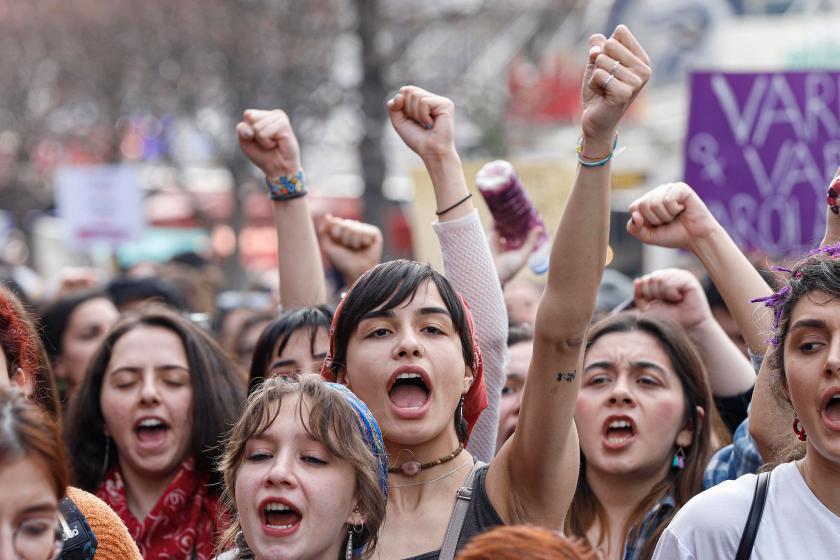Turkey: Getting Out?
February 4, 2023 | Expert Insights

Considered one of the most open and advanced Muslim democracies in the world, Turkey, a nation of more than 80 million people, is set to hold its most consequential general elections in generations. But Turkish citizens are leaving the country ahead of the upcoming elections or converting their financial assets into dollars or gold. The reasons behind this exodus are complex and multi-faceted.
Background
Some would blame the exodus on rising prices and a looming economic crisis. But Turkey is no stranger to inflation as in the 1980s and 1990s; the country experienced inflation rates spike as high as 100 per cent. For the next two decades, the state continued to struggle with inflation that hovered around 60 per cent before establishing new mandates in the early 2000s.
It was basically the reforms of 2001 which changed the status quo significantly. Now the central bank's core mandate was to be on price stability, and it could also assist the government with growth and employment, but only if that did not come at the expense of stable prices. Other significant changes included forbidding the central bank from buying government-issued bonds in primary markets.
The purpose of these reforms was to grant autonomy to the central bank. Following this, the central bank went on its attempt to stabilize inflation. But unfortunately, there is not much a central bank can do to reduce such high levels of inflation. To solve this issue, Turkey released the new Lira in 2005, which was exchangeable for the old Lira at a rate of 1 to 1 million, respectively. This new monetary stability, alongside relative political stability, allowed the nation to grow rapidly in the past two decades.
With a great geographic location, a mature industrial base and a tourism sector all backed up by a self-governing currency that was seemingly under careful control, the country was performing reasonably well. But the growth story didn't last for long, and the current issues facing the nation surfaced around 2014 when Recep Tayyip Erdogan was elected as the 12th President of Turkey.

Analysis
Mr Erdogan served as the country's prime minister from 2003 to 2014. His first decade in power saw economic prosperity, which lifted millions of Turks out of poverty. Since then, however, things have changed a lot. The economic boom that lifted millions of people into the middle class for two decades had begun to falter.
In 2021 alone, the Turkish Lira lost 50 per cent of its value against the dollar. One of the reasons for depreciation is skyrocketing inflation. The Turkish savers are trying to exchange the Lira earned for dollars and gold, which is causing damage to the local financial system. This process accelerates depreciation and contributes to consuming the country’s foreign currency reserves. The collapse of the Lira has also led to a huge flight of foreign capital. The Turkish Central Bank has repeatedly intervened in the market by selling foreign currencies, depleting the country's net reserves. The strange part of this monetary debacle is that although inflation is skyrocketing and the Lira is plummeting, Central Bank is lowering interest rates. This is because Turkey's all-powerful President is a supporter of "Islamic Finance", and he believes that lower interest rates encourage investment which increases production, boosting exports and making the country richer.
“Islamic Economics” consider interest rates as the mother of all evils. This has become important because, starting in 2017, Turkey discovered that though government borrowing has been modest, the private sector has been taking foreign debt to capitalize on rapid growth. This highly leveraged position can be terrible during bad times.
This issue came to the fore in 2016 when Turkey's bid to upgrade itself from a trading partner of the EU to a full-fledged EU member state was knocked back primarily due to human rights concerns. This made foreign financial institutions think twice before lending money, and tourists think twice before planning a holiday. As these revenue sources dried up, private companies shut down because they could not meet debt obligations. This was made worse by declining currency. The solution was to raise interest rates, and this worked but at the cost of a high unemployment rate. The Covid-19 pandemic bought the same plight again because the Turkish economy is heavily dependent on manufacturing and tourism, which were almost put on hold for two years of the pandemic. The companies that survived the 1st debt crisis were now facing the economic implications of foreign debts, which were driving down the currency's value.
The central bank initially raised interest rates to keep currency devaluation under control, but President Erdogan, being a self-confessed follower of Islamic economics, dismissed central bank officials for not agreeing to lower interest rates. Many small businesses and farmers are not able to afford regular imports. The unfortunate irony is that wealthy Turks also move their cash into dollars, accelerating Lira's decline.
Apart from economic turbulence, there are human rights issues as well. These have surfaced regularly after a part of the military attempted a coup against the regime of President Erdogan in 2016. The coup failed, but tens of thousands of citizens, soldiers, teachers and judges were arrested or dismissed and replaced by inexperienced officials loyal to the government. The President used this coup to consolidate power. He has pushed for constitutional changes granting him more power, cracked down on domestic protests, and prosecuted dissenting academics and journalists.
Assessment
- Turkey is increasingly sliding into authoritarianism as it has a president who has taken control of every major institution in the country and is committed to a type of economic policy, the results of which are worsening.
- The 2023 election is equally important for emigrants hoping for a positive transformation to return to their homes. But nobody should expect a 180-degree turn even if a new government comes in because for 20 years, Mr Erdogan has sowed the seeds of his radical worldview in the Turkish institutions, and the new President would have to dismantle the structure the autocratic President has built.
- The impact of Turkey’s economic woes spreads far beyond its shores. The election outcomes will likely shape geopolitics as Turkey is a common connection point between Russia, the Middle East and Central Asia and a member of the international community: a member of NATO and the OECD.








Comments